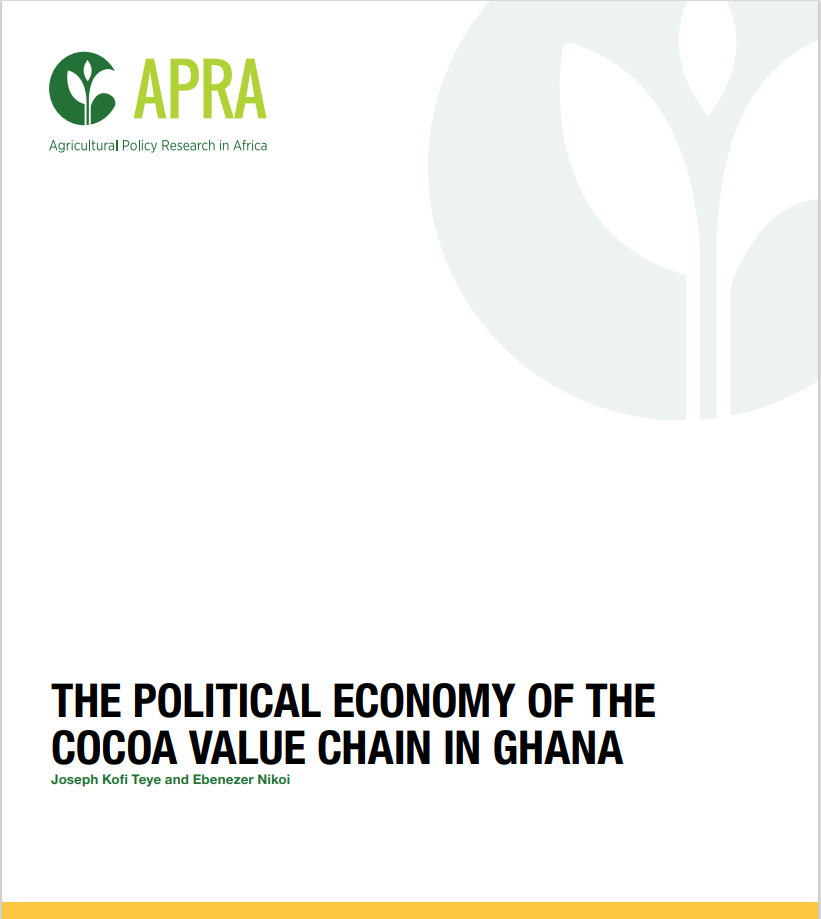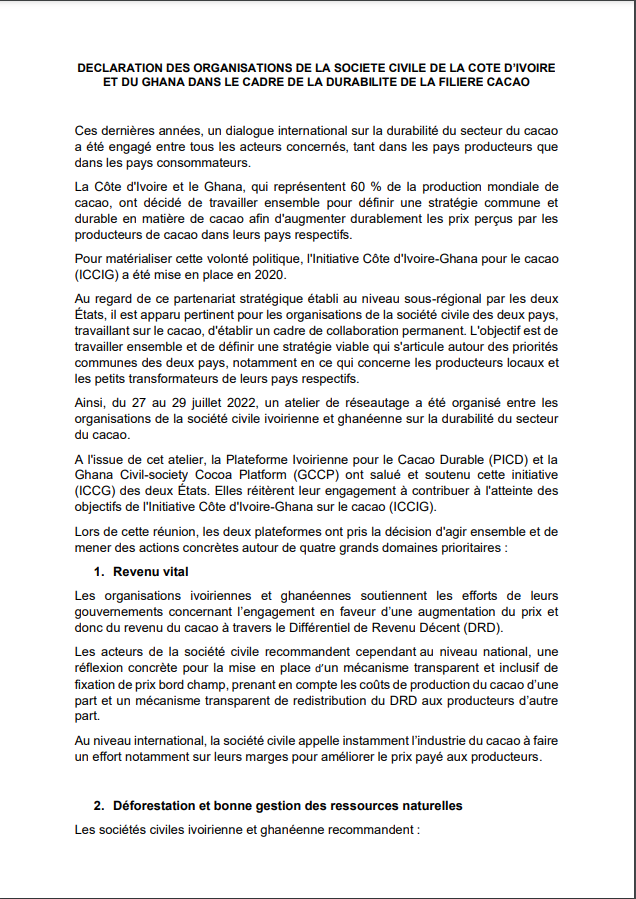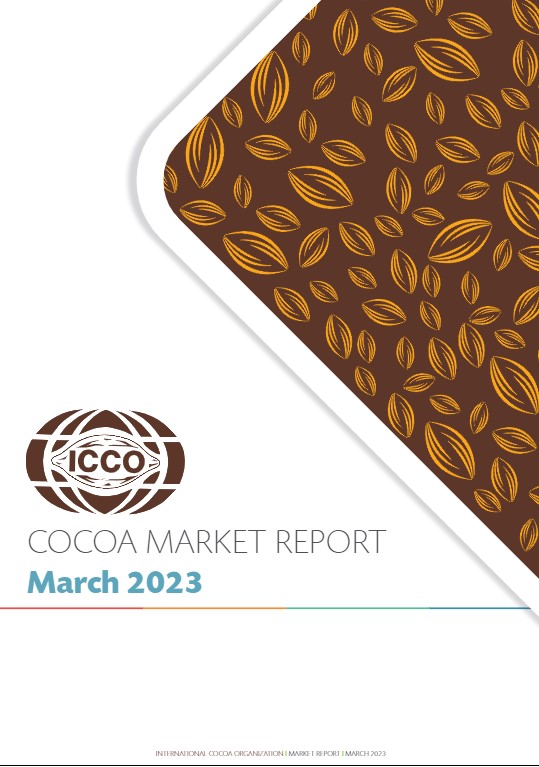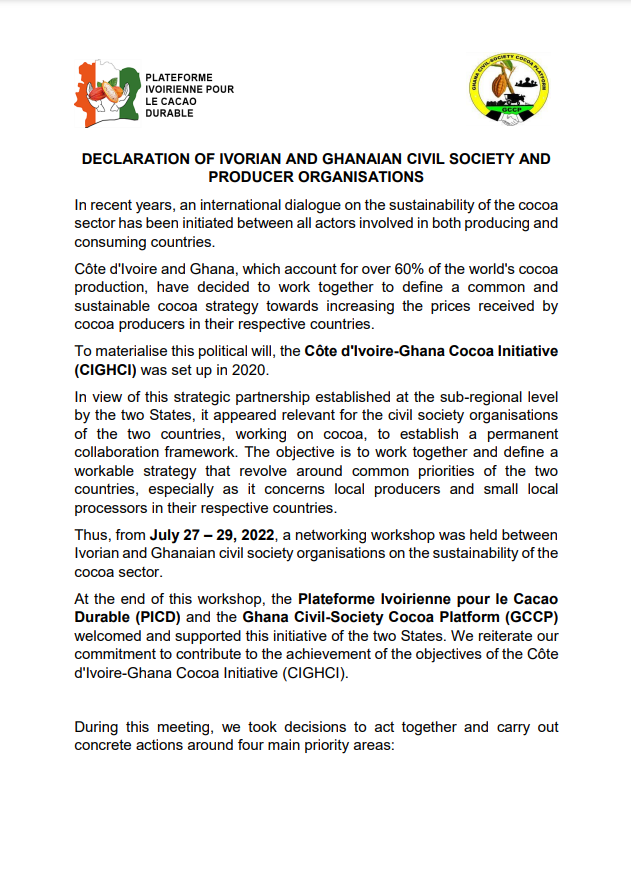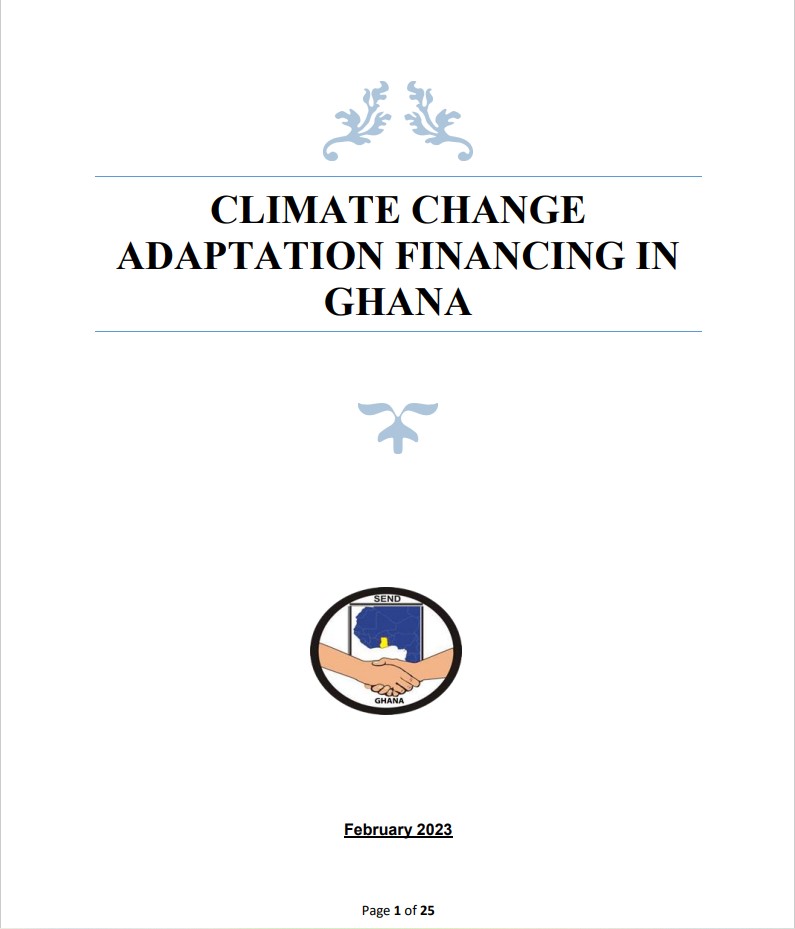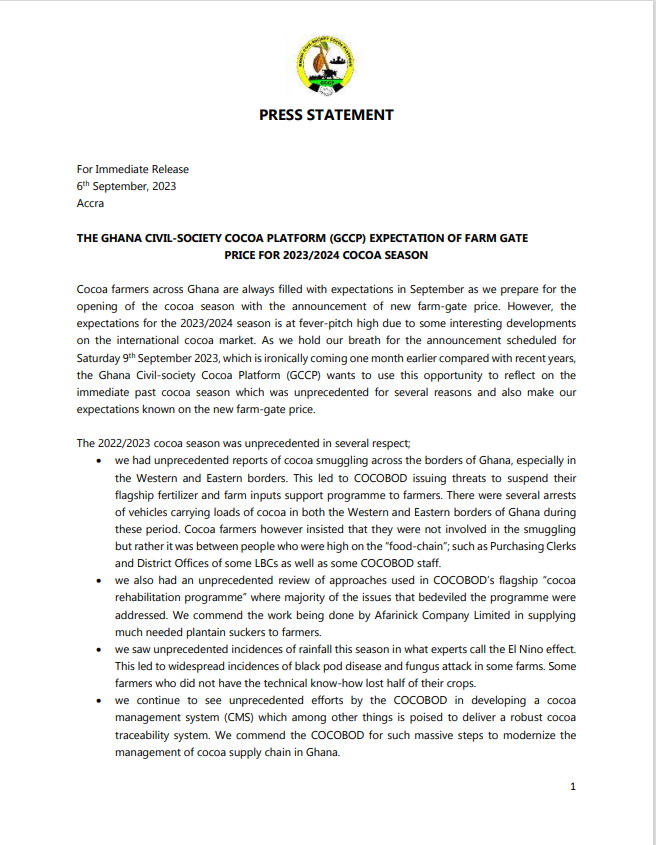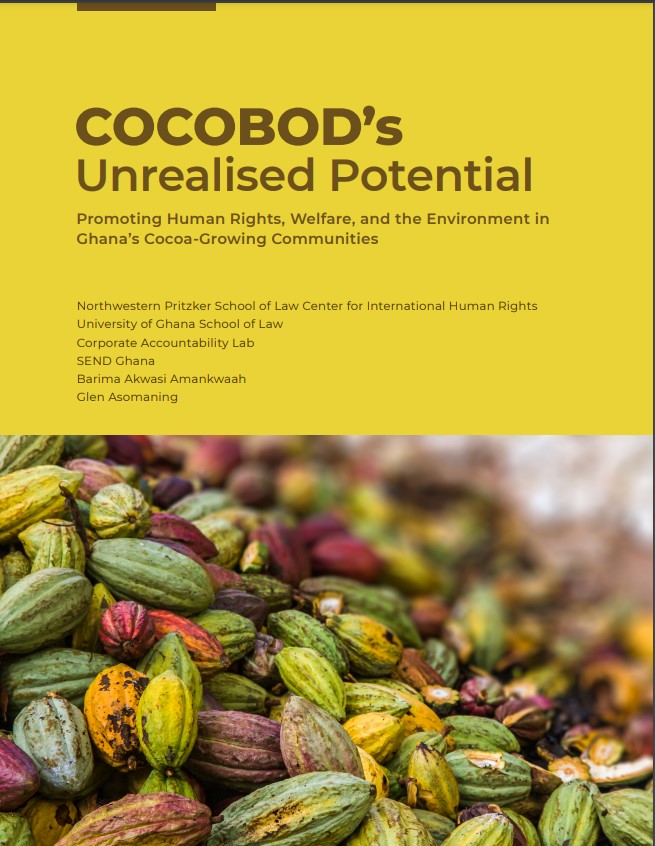
A recent Global Forest Watch report1 indicate that between 2017 and 2018 Ghana’s rate of deforestation rose by 60%, the highest in the world. The same report singled out agricultural expansion (in the middle and southern belt of Ghana) and mining (in the north) as leading in this unfortunate state of affairs. These causes, as suggested by the report, are not entirely new to most people who have been following the dynamics of forest loss in Ghana. All known technical reports on forest loss in Ghana – such as the Ghana REDD+ Strategy, Nationally Determined Contribution document, Forest Reference Level document and Climate Change Strategy document – all identify agricultural expansion as contributing to more than 50% of forest loss in Ghana. All these in-country reports also align with the International Panel on Climate Change (IPCC) assertion in their latest report that agriculture (large and small scale) is the leading contributor to global forest loss.
In Ghana, the recently developed Forest Reference Level document by the Forestry Commission identified cocoa production and expansion as contributing over 80% to agricultural deforestation. This is evident in the continuous reported incidences of cocoa farmers encroaching into forest reserves to cultivate new cocoa farms. Notable cases are the complete takeover of Manzan, Sukusuku, Bia Tawya and most recently Bodi Forest Reserves by farmers. Forest reserves such as Krokosua, Sui and Tano Offin are also under serious invasion by unscrupulous farmers with support from local traditional authorities.
The sad situation is that all the cocoa produced from these seemingly “illegal” activities1 https://blog.globalforestwatch.org/data-and-research/world-lost-belgium-sized-area-of-primary-rainforests-last-year1 are whole-heartedly welcomed into the supply chain by licensed buying companies and the COCOBOD. It is believed that as high as 20 to 25% of cocoa produced in Ghana is coming from “illegal” sources. Yes, ILLEGAL sources; i.e. expanded admitted farms and encroachment into forest reserves and protected areas to produce cocoa.
A recently reported statement2 of the Chief Executive Officer of the Ghana Cocoa Board sought to shift the blame of cocoa-driven deforestation to timber loggers. Speaking in Switzerland to a group of chocolate manufacturers, the COCOBOD CEO is quoted as saying “though cocoa have been planted on lands in Ghana which in the past were reserved forests, the activities of lumbering companies reduced the forest before cocoa farmers converting the depleted vegetation into cocoa farms.”He furtherstated that, “So, in effect, it is not cocoa farmers, who cause deforestation, but now the general idea is that cocoa is causing deforestation. I beg to differ”.Theseassertions by the CEO of COCOBOD appear to indicate that cocoa farmers only go into the forest after loggers have already removed some trees, and therefore cocoa farmers or cocoa production cannot be said to be causing deforestation. In response to this unfortunate statement, the Ghana Civil-society Cocoa Platform (GCCP) wishes to debunk the following misunderstandings created by the CEO’s statement:
- What is deforestation and why is the CEO’s position flawed/uninformed?
The fundamental problem with the CEOs argument stems from his confusion between forest degradation and deforestation. There is a difference between forest degradation and deforestation and being able to differentiate between them is crucial for unambiguous communication and strategic planning purposes. There are situations that it becomes very important to know the differences and apply them appropriately – this is one of those situations. The simplest differentiation is, “When agriculture, mining, urban development or other land uses replace forest, the land is said to have experienced deforestation. By contrast, degradation is a gradual process through which a forest’s biomass declines, its species composition changes or its soil quality declines.
Degradation often precedes deforestation”3.Indeed, timber loggers harvest trees fromforest reserves and deplete the forest of trees which will not allow the forest to perform its functions effectively (this is forest degradation); but timber loggers do not convert the forestland to other land use (this is deforestation) – cocoa farmers do that.
- https://www.ghanaweb.com/GhanaHomePage/NewsArchive/Cocoa-not-driver-of-deforestation-Europeans-told-742847#
- http://www.euredd.efi.int/deforestation
Ordinarily, if logged areas are left for some number of years they will recuperate and regenerate. But when farmers invade and convert the logged areas into cocoa farms, they have changed the forestland use and that is the problem we are articulating. The CEO of COCOBOD cannot confuse these two very similar but distinct phenomenon.
- We strongly urge the COCOBOD to clarify its position on Cocoa-driven Deforestation
The government’s own statistics state that cocoa is a leading driver of deforestation in Ghana. As stated above, the Ghana REDD+ Strategy, Nationally Determined Contribution document and Climate Change Strategy document – all identify agricultural expansion as driving more than 50% of forest loss in Ghana. And Ghana’s recently developed Forest Reference Level document identified cocoa production and expansion as contributing over 80% to this agricultural deforestation. For the past few years the COCOBOD has been cultivating an internal discourse about deforestation and the role that cocoa plays, it has used the term “deforestation” very loosely to mean loss of tree cover in areas that initially had trees. However, the COCOBOD always fall short of admitting that cocoa is a major cause of forest loss in Ghana. The COCOBOD, as echoed by its CEO also hold the position that replacing degraded forestlands with cocoa trees equates to reforesting that degraded forestland. We unequivocally disagree with this narrow view of forest restoration. There is a difference between introducing trees into cocoa farmlands and introducing cocoa into forestlands, the latter is what the CEO is advocating – this is unacceptable. Again, there is a known phenomenon called “curtains” that happen in forest reserves that are encroached by farmers. This happens when farmers (mostly cocoa farmers) invade the forest and make farms but intentionally do not fell the big timber trees. So for an outsider when you see the area it might appear as a forest but when you get closer you’ll realize that it’s all cocoa farm. This phenomenon is well known to Forestry Commission and COCOBOD and for the CEO to argue that cocoa farmers do not cause deforestation is unacceptable.
- Impact on Ghana’s image and commitment to CFI, REDD+ and SDG Goals
Ghana is implementing several programmes aimed at reducing the rate of forest loss – notably; Reducing Emissions from Deforestation and Forest Degradation (REDD+), Sustainable Development Goals (SDGs), Nationally Determined Contributions (NDCs) and most recently Cocoa and Forest Initiative (CFI). It is a known fact that Ghana has one of the highest deforestation rates in the world, and most of these programmes are anchored on the premise that Ghana knows what is causing deforestation and are prepared to put in measures aimed at addressing these problems. For the CEO of COCOBOD – which is a major partner in most of the interventions aimed at reducing deforestation (especially from cocoa landscapes) to openly re-litigate the fundamentals of these programmes raises issues about their commitments to them. It also damages Ghana’s image and reputation to international partners – it questions whether our leaders really know what they are doing? The programme this statement by the COCOBOD CEO damages the most is the Cocoa and Forest Initiative whose central theme is the recognition that cocoa production is causing deforestation and that it can be minimized through collaborative efforts of government, civil society and cocoa companies. It becomes a betrayal of the process if a key signatory to the programme begins to question the basis for the programme.
We understand that cocoa is the backbone of the Ghanaian economy, but we also need to know that if we continue the business as usual scenario, there wouldn’t be any arable land to plant cocoa in the next few decades. It is our considered opinion that, when duty bearers and people who are supposed to champion the fight against cocoa-driven deforestation use international platforms given to them to rather denigrate and counter efforts being made, it becomes a sad thing. Especially when this duty-bearer was talking to private sector players who have shown commitment to address the problem of cocoa-driven deforestation.
We therefore call on the COCOBOD and its CEO to clarify their position on cocoa-driven deforestation, because this current position is not supported by the facts on the ground.

